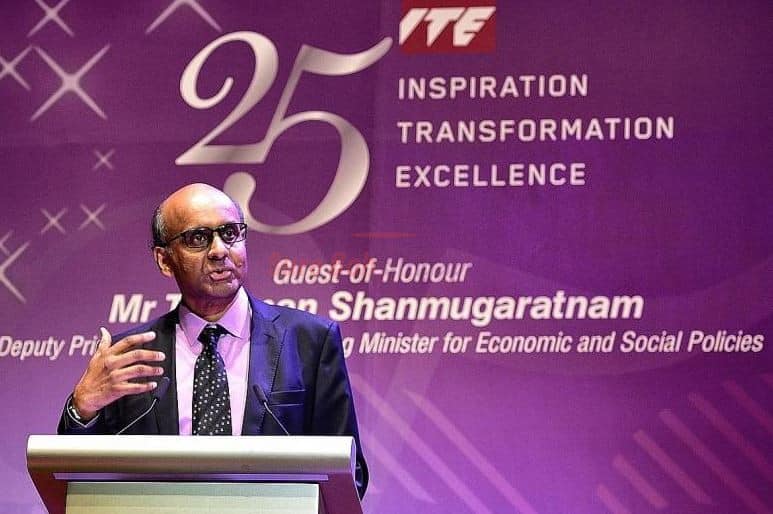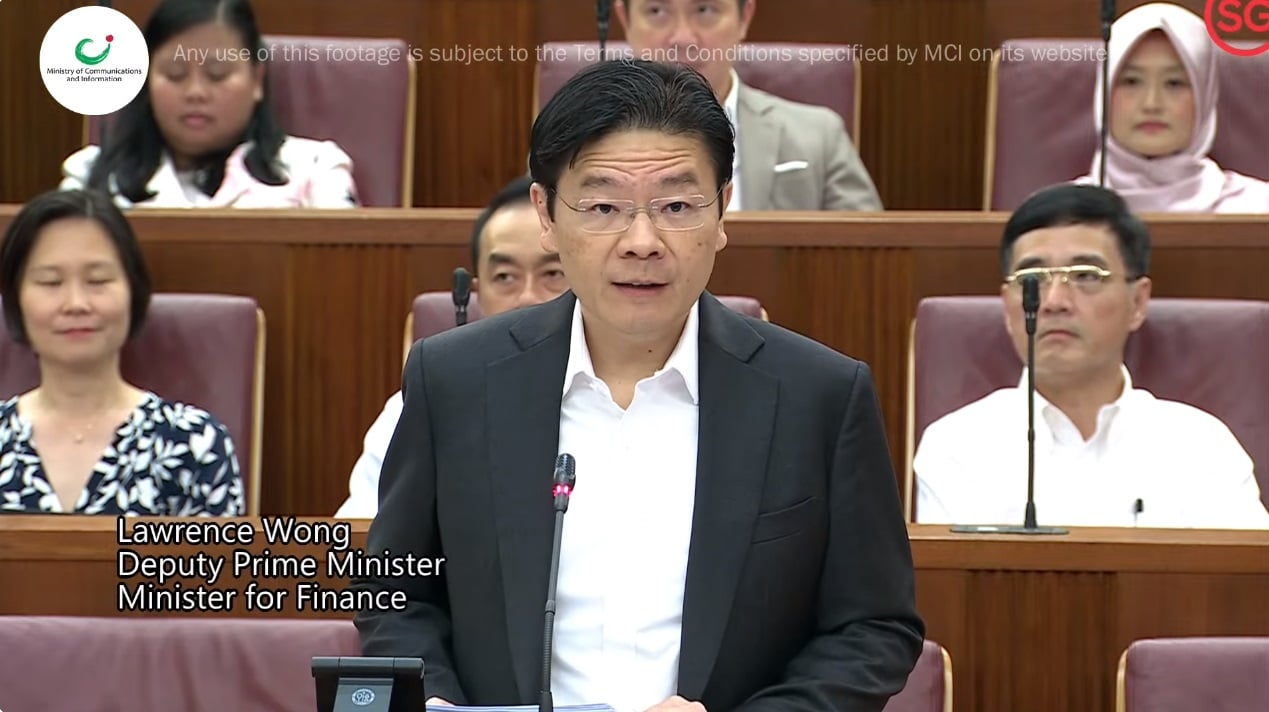
In the push towards lifelong learning, the Institute of Technical Education (ITE) will have a key role to play, Deputy Prime Minister Tharman Shanmugaratnam said on Friday (May 26).
But as the institute transforms to pave the way for its graduates to keep learning throughout their lives, employers and firms must assume a bigger role in taking ownership for, and pride in, training their staff, and forming industry partnerships to build up the workforce.
Speaking at the ITE’s 25th anniversary celebration at its headquarters in Ang Mo Kio, Mr Tharman said the institute has been a “remarkable success” in just 25 years.
It has shifted the attitudes of the public and employers, with ITE graduates “well sought after” in the industry, he added.
But it was a success that many did not expect from the outset.
“There were doubts but we gave it our best – the Government lent it our full support and it’s turned out to be a resounding success,” said Mr Tharman, who is also Coordinating Minister for Economic and Social Policies.
Describing the ITE as a “key anchor” of the SkillsFuture movement, Mr Tharman said the Republic’s education system, of which the ITE is a “core part”, cannot “front-load learning into the first 17 to 21 years of life”.
This comes as technology continues to disrupt industries and jobs — likely at a faster pace and across every field in time to come — and learning must happen throughout one’s career, so that individuals not only “stay employed” but also “keep improving and keep moving up in life”.
But the ITE cannot do it alone. “We need more of the culture that we see in some of the northern European countries, where employers take training very seriously … collaborating with each other within the industries to be able to train people up for the future,” he said.
Mr Tharman said the institute would continue infusing work experience into its curriculum, and was on track to meeting its target of having all its students go through “enhanced” internships by 2020. These internships include clear learning outcomes and better mentoring.
On continuing education and training (CET), Mr Tharman noted that, as industries evolve, graduates from all fields would return to upgrade their skills, be it with the ITE, a polytechnic or university.
Right now, ITE’s CET trainees hail from “all walks of life” and recognise the value of picking up technical skills. One-tenth of adult learners at ITE are diploma or degree holders, he said.
Aside from promoting lifelong learning, the ITE will also play an important role in the Government’s industry transformation programmes. The institute serves as the coordinator for the land transport, restaurant operations and landscape sectors, which bank on its expertise.
It will work closely with employers to grasp trends and pinpoint new skills ahead of time, and join hands with other tertiary institutions to roll out training programmes to fulfil evolving needs.
The ITE, added Mr Tharman, has also a played a “direct” role in innovation, having built strengths in applied research in areas from advanced manufacturing and engineering to the health and biomedical sciences.
For instance, the ITE, working with the National University Hospital, has developed a device for use in procedures to treat kidney stones. The percutaneous access to kidney assist device, which has been patented, speeds up the process of aligning and stabilising the needle with the kidney stones, cutting the risk of complications.
“All our institutions are now doing research and development in different areas … this is something that the ITE is now fully engaged in,” he said.
Noting that it has fashioned a credible national ITE certification system, industry-based training and enlarged professional opportunities for graduates, Mr Tharman added: “We’ve an institution that is recognised both within Singapore and internationally as producing young people armed with the applied skills and the optimism that comes from knowing that their education will allow them to get a good job, keep learning in life, and keep contributing to their country.”
Friday’s celebration was attended by about 1,300 people, including Education Minister (Higher Education and Skills) Ong Ye Kung and former Education Minister Lee Yock Suan.





